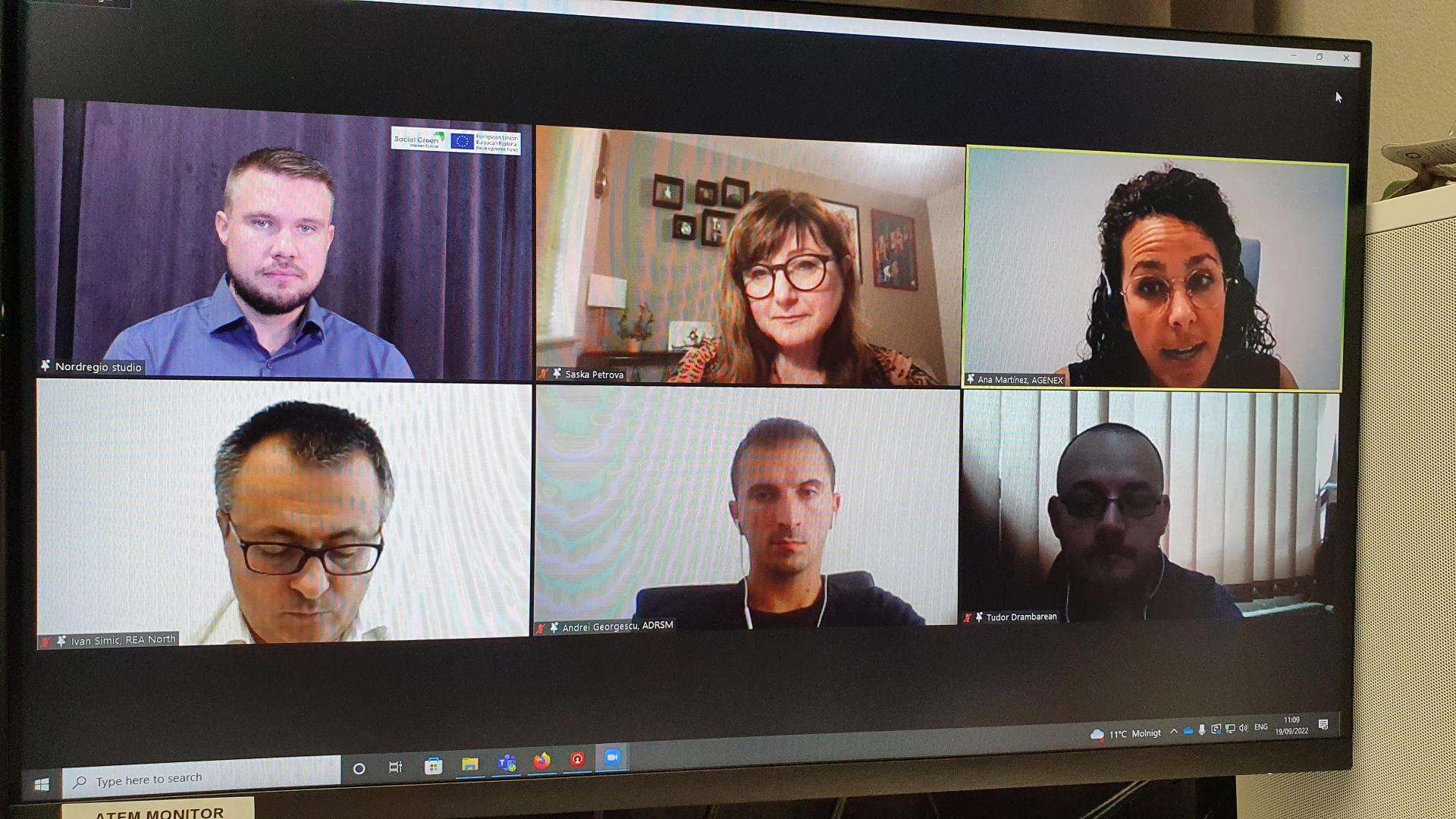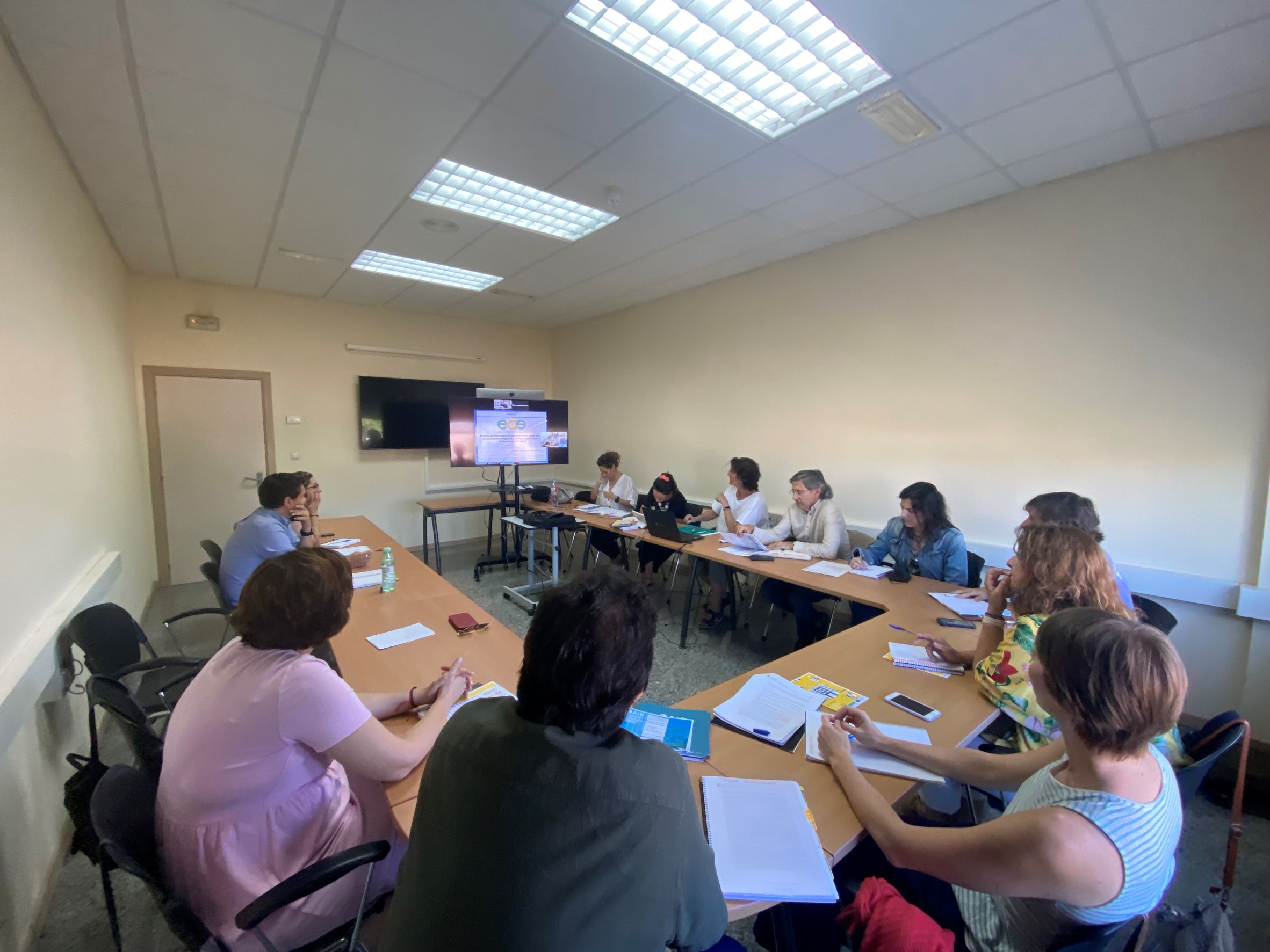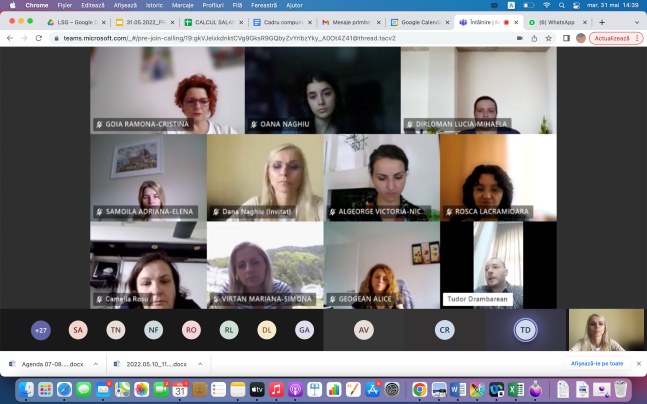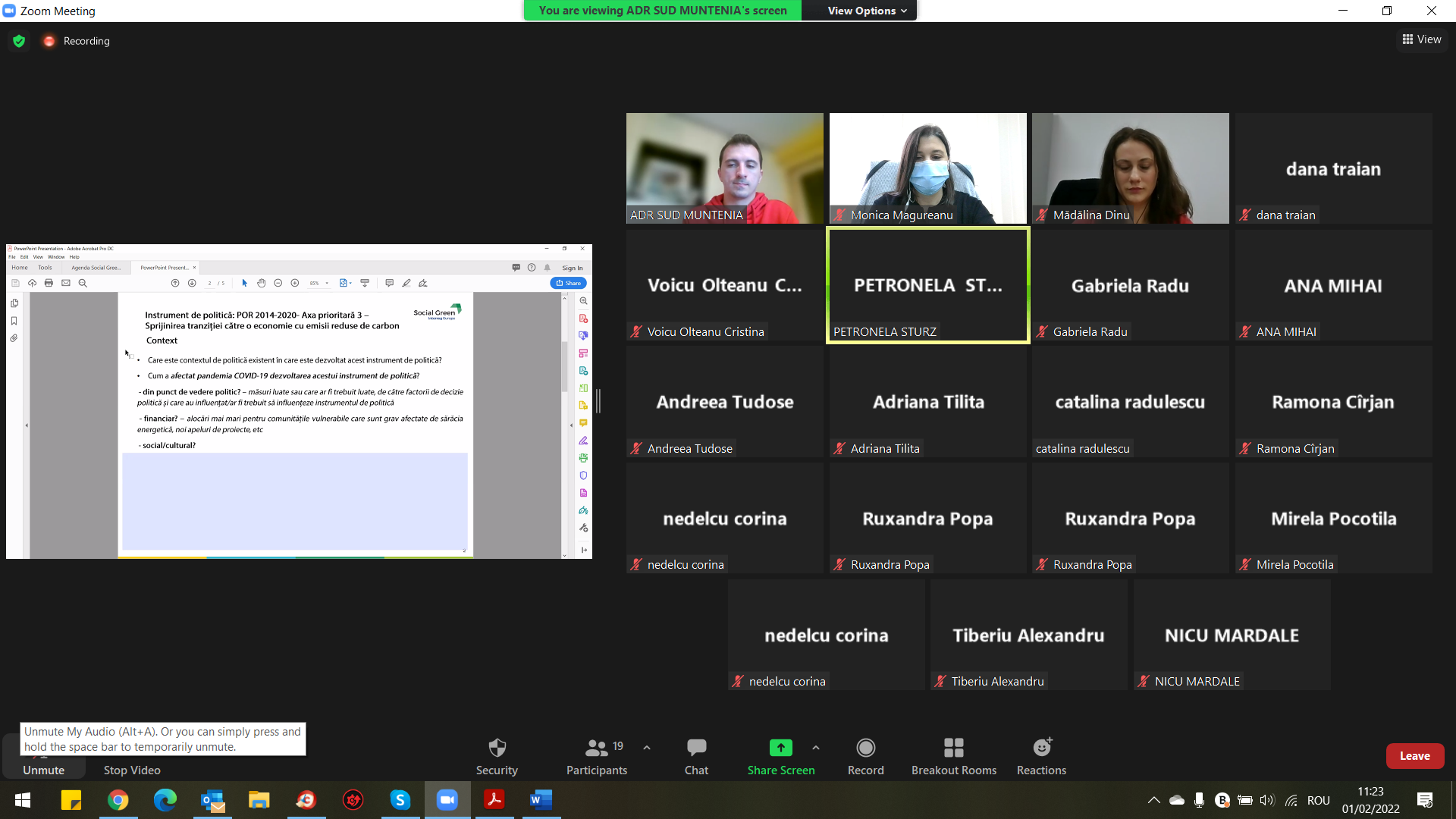
Combatting energy poverty in times of crisis
Last Monday, 19 September, the Social Green partners gathered for the final event on combatting energy poverty in times of crisis.
Please check out Social Green video presentation from our launch event. The video includes a meeting with Social Green Partners and an explanation of the local importance of this project.
The proposed project entitled “Regional Policies towards Greening the Social Housing Sector” is oriented to jointly tackling the topic of housing deprivation and energy efficiency in the scope of social housing sector towards a lower carbon economy. In this context the overall objective of the project is to improve regional policy instruments targeting the link between social housing sector and fuel poverty with green building interventions considering policy, institutional, financial and technical levels.
Through interregional cooperation, regions will identify, share and transfer innovative methodologies, processes and good practices in developing and implementing greener social housing sector policies, targeting new constructions or retrofitting existing buildings. For do so, study visits, good practices workshop, local stakeholders meetings, among other dissemination events will be organised. Within this interregional learning process (phase 1 - 5 semesters) the regions involved in the project will develop important outputs, namely: self-assessment reports, good practices guides and regional action plans. Following the phase 1, it will start a period with the duration of four semesters - phase 2, focused on monitoring the implementation of the action plans developed previously and a final result report will be produced to summarise its achievements.
The partnership includes 8 partners from 6 countries (Portugal, Spain, Croatia, Estonia, Sweden, Romania), with capacity to influence the policy instruments related to greening the social housing sector. One advisory partner, Nordregio (Sweden) will provide scientific and technical support to the consortium. The other partners, mainly municipalities, energy agencies and Managing Authorities will jointly work in the development of the main project's activities, namely preparation, implementation and monitoring.
€1,422,304.00
Low-carbon economy
Main features-Investment priority PI.4.3:
EO 4.3.1. Increase the EE and reduce the CO2 emissions in buildings, infrastructures and public services, presents 3 axes of intervention:
OE.9.7.1.”Investment in social and health infrastructures in order to reduce social inequality” covers the construction of social infrastructures and the construction of health centres.
Tables 32 and 72 of the OP show that the full amount of budget in both OE are addressed to funding tool 1 (non-refundable grant system), among the 7 possible tools provided by the OP. The assigned budget for this policy tool is 33.023.700 € for the full period 2014-2020.
Why it should be improved:
In the current and precedent OPs only non-refundable grants were selected to invest the budget of the energy priorities. This model has worked until the moment, the situation has changed and new tools are under development in Europe which could better manage the 33M€ of the priority 4.3.1.
ROP is one of the programs integrated in the 2014-2020 Partnership Agreement.
The objective of ROP is to increase economic competitiveness and improve living conditions of local and regional communities by supporting business development, infrastructural conditions and services to ensure sustainable development of the regions, capable of managing the resources efficiently, exploit their innovation potential and assimilation of technological progress.
Regional Operational Program – Axis 3 “Supporting the transition to a low carbon economy” has 2 major investment priorities:
The policy instrument is very relevant for the rehabilitation and modernization of the existent building stock and represents a strong support for the municipalities to improve the energy efficiency of the buildings in a modern and sustainable way. However, this policy instrument could be considerably improved in order to have more targeted measures for providing innovative measures which address the current needs while interconnecting with other similar policy instruments at national level in a smart way.
Main priorities
Priority axe 2.6 - Energy Efficiency - Investment priority 1: Supporting energy efficiency, smart energy management and renewable energy use in public infrastructure, including in public buildings, and in the housing sector; Specific objective 1: Energy-efficient housing sector and street lighting, and increased share of renewable energy in final consumption.
Priority axe 2.9 Sustainable Urban development: supporting sustainable development strategies of five larger urban areas in Estonia, one of them being Tartu.
Objective: Increasing energy efficiency in houses, public buildings and public lightning systems, especially big energy consumers.
This priority will support green measures for public buildings targeting deep renovation, including thermal insulation, rehabilitation and upgrading of heating systems and installations, lightning and energy management system of the buildings. All public buildings owned or administrated by central and local authorities and institutions, will be eligible for funding.
The program is based on the concentration of investments into 9 thematic objectives of the Common Strategic Framework and their respective investment priorities.
The main goals of this policy instrument in thematic objective ‘energy’ is to increase the use of renewable energy sources (RES) and energy efficiency (EE), especially in final energy consumption, thus providing multiple benefits such as reduction of emissions, decrease in consumption and related expenses, and increasing the security of supply; and provide opportunity for green jobs and technological/manufaturing development.
Partner’s focus in this project will be thematic objective “Supporting the shift towards a low-carbon economy in all sectors“ within investments priority “Supporting energy efficiency, smart energy management and renewable energy use in public infrastructure, including in public buildings, and in the housing sector”. The operational program provides significant and relevant support in all areas that account for most of the energy demand. 100 million Euro budget is foreseen for refurbishment of residential building sector. The policy foresees only one social criterion, namely the development index of the municipality where building is located. The intensity of financial support is directly related to the index, where most underdeveloped areas will get double as big support as the most developed areas. Furthermore, the policy instrument does not recognize social housing buldings.
The policy instrument refers to the Regional Operational Program – North – Thematic Objective 4 – Support the transition towards a low carbon economy in all sectors; Priority 4c – Support energy efficiency, intelligent energy management and the use of renewable energy sources in public infrastructures; Specific Objective - To raise energy efficiency in the social housing sector, supporting the implementation of integrated measures of promotion of energy efficiency and rationalizing consumption.
The instrument supports interventions related to energy efficiency in the social housing sector. These interventions are restricted to public buildings. Energy audits are needed before launching the urban operations.
The improvements of this instrument need to be centered in the following areas: involvement of stakeholders; enlargement of the target group; and combination with other Financial Instruments.
This policy instruments will be approached by 2 partners: CCDR-N and INTELI.

Last Monday, 19 September, the Social Green partners gathered for the final event on combatting energy poverty in times of crisis.
REAN presents a solar PV mapping tool and engages with stakeholders in a discussion about the problems facing energy-poor citizens.

Agenex hosts their second local stakeholder group meeting in Cáceres.

AIM completes an 'Impacts and Assurances' assessment of their regional policy instrument during their second LSG meeting.
From 3-4 May, Social Green partners and local stakeholders met in Spain to discuss the work of improving energy efficiency in social housing.
Social Green Project held their 2nd Interregional Event on the 24th of February.

In February, SMRDA hosted their second stakeholder group meeting online. Representatives from SMRDA presented and discussed strengths and opportunities regardin...
In December 2021, Social Green hosted their first interregional meeting of the fifth-call activities.
Representatives engage in discussions around defining energy poverty and influencing the national policy instrument at REAN's first LSG meeting of 2021-2022.
Agenex hosted their first local stakeholder gathering in correspondence with EXPOENERGEA 2021.